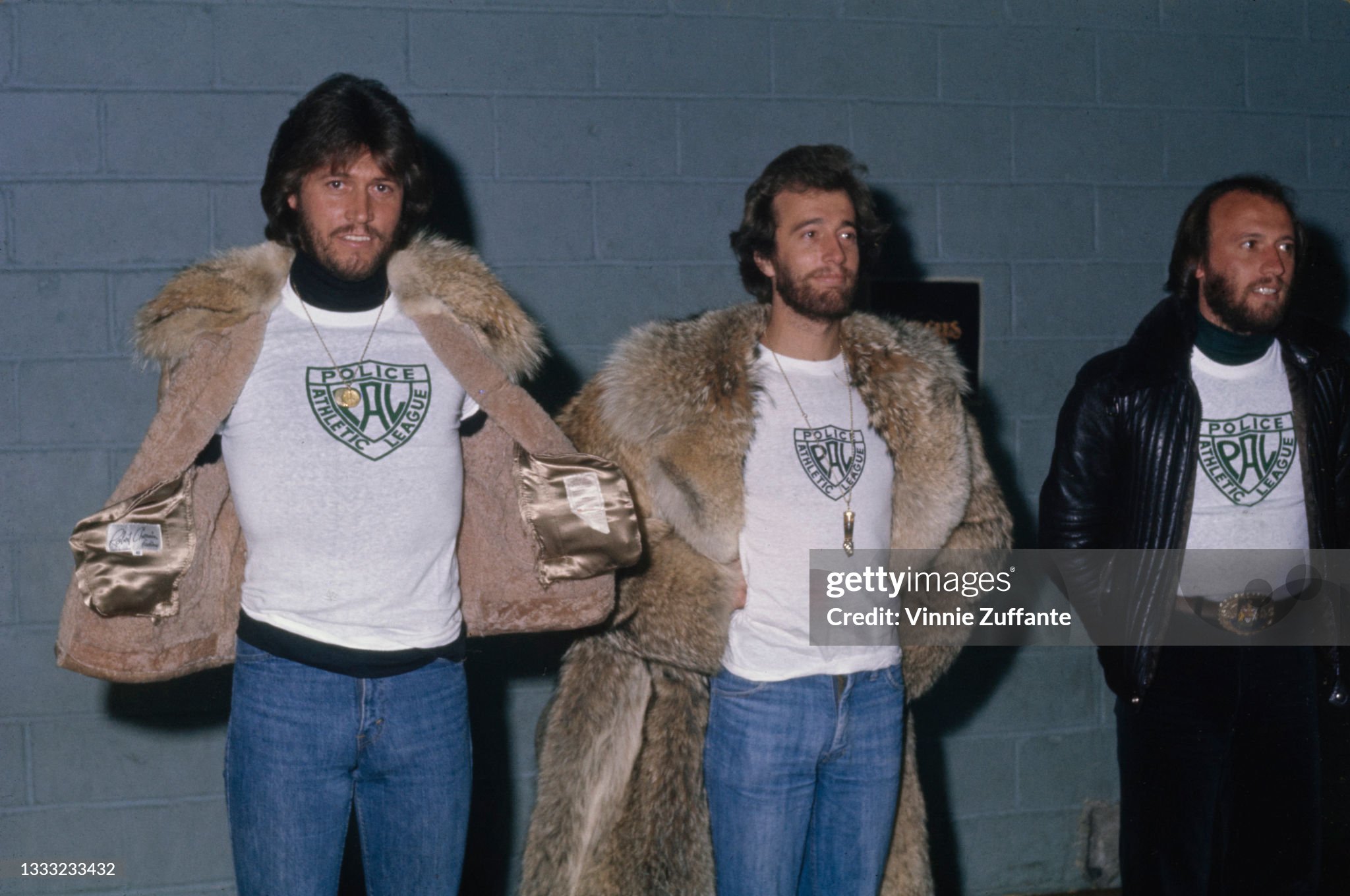
A fragile hymn of escape—when a single “chime” becomes the small mercy that keeps a wounded heart standing.
If you ever needed proof that the Bee Gees’ story was never just one story, “Saved by the Bell” is it. Released on 27 June 1969, the record arrived under the name Robin Gibb—yet it carried the unmistakable family fingerprint: the same ache, the same melodic inevitability, the same sense that sorrow could be dressed in velvet and still cut to the bone. In Britain it surged all the way to No. 2 on the Official Singles Chart, beginning its chart run on 15 July 1969 and staying on the chart for 16 weeks—a remarkable statement for a “solo” single born from a very public fracture.
That fracture matters, because it’s the atmosphere you can hear between the notes. Robin had announced he was leaving the Bee Gees on 19 March 1969, during a tense period when the band even recorded material without him that same day—an artistic household suddenly split into separate rooms. Not long after, “Saved by the Bell” was recorded around March 1969 at De Lane Lea Studios in London. And despite the “solo” billing, the family ties didn’t simply vanish: Maurice Gibb contributed significantly—playing piano, adding vocals, and recording organ and guitar, with the track then shaped by arranger Kenny Clayton and orchestral arranger John Fiddy. In other words, this wasn’t an exile so much as a different address—Robin stepping out alone, while the brothers’ musical language still lingered in the doorway.
Commercially, the song’s success was immediate and bittersweet: it rose to No. 2 in the UK, famously competing in the same season with the Bee Gees’ own “Don’t Forget to Remember”—two related voices, charting side-by-side like brothers walking parallel streets. Beyond the UK, the record became a genuine international hit, reaching No. 1 in South Africa, the Netherlands, New Zealand, and Ireland, while the United States proved far less welcoming, where it peaked at No. 87. The contrast is telling: Europe heard a dramatic, choir-lifted lament; America, in that moment, had other radio weather.
Musically, “Saved by the Bell” belongs to that late-’60s space where pop still dared to be theatrical without blushing. The production frames Robin’s voice like a solitary figure under a high ceiling—then answers him with a chorus that feels communal, almost church-like, as if private grief has wandered into public ceremony. There’s a gentle grandeur to it: not bombast, but scale—strings and voices arriving like memory itself, swelling when you least expect it. And Robin’s vocal—thin as a wire, yet unbreakably tense—does what he always did so uniquely: he doesn’t merely sing the melody, he haunts it.
So what is the “bell,” really? The title suggests rescue, but it’s not the triumphant rescue of fanfare and sunlight. It’s closer to reprieve: that moment when life is unbearable, and then—somehow—the pressure eases. The “bell” can be heard as a metaphor for timing, for interruption, for the mercy of a pause. In everyday life, bells end shifts, end rounds, end lessons; they separate what you survived from what you still must face. Robin turns that ordinary sound into something spiritual: the sense that you were about to go under, and then something—anything—rang out and pulled you back to the surface.
There’s also a deeper poignancy in knowing what sat behind the record: a young man proving, publicly, that he could stand apart—while still sounding like the most intimate part of a larger whole. The single became the lead calling card for his debut solo album Robin’s Reign (released in 1970), an album remembered as artistically distinctive even if it didn’t match the single’s commercial impact. And in a wonderfully revealing interview from that period, Robin spoke with pride—almost defiance—about his songwriting, insisting he wrote everything to single-worthy standard, even arguing that the B-side “Mother and Jack” could have been an A-side.
In hindsight, “Saved by the Bell” feels like a photograph taken at the exact second a family argument becomes a life chapter. It’s not simply a “Robin Gibb solo hit,” and it’s not simply a “Bee Gees adjacent” curiosity. It’s a bridge made of emotion: one foot planted in separation, the other still reaching toward the familiar harmony of brotherhood. And every time that chorus rises—solemn, tender, strangely consoling—it reminds you that pop music, at its best, doesn’t just entertain. It keeps time for our lives… and sometimes, if we’re lucky, it rings right when we need it most.